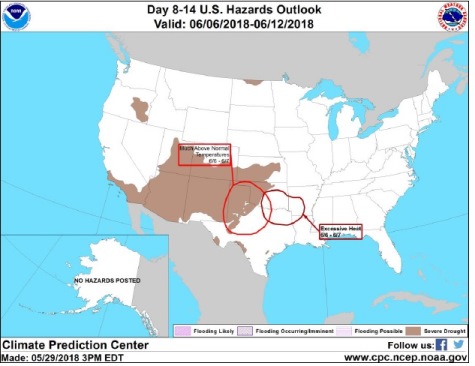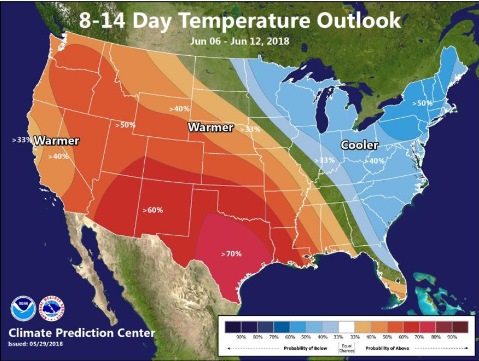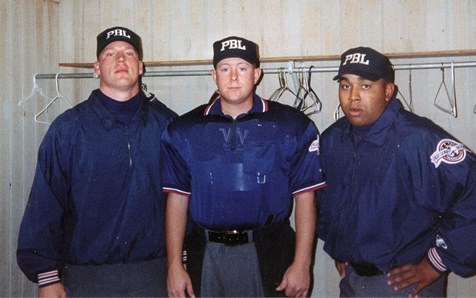by Celia Llopis-Jepsen, Kansas News Service
Five-year-old Ridley sits at a picnic table in his backyard in Lawrence, one leg dangling and the other tucked beneath him. His eyes are focused on a row of Hot Wheels that his therapist asked him to count.
“One, two, three,” he says in a whisper, his finger hovering over each toy car until he reaches the last one. Turning to an iPad that he uses to communicate, he clicks an icon. “Eight,” the computerized voice announces.
“Good job!” coos therapist Ashley Estrada, a specialist in treatment for children with autism. “You did it by yourself.”
Then Ridley’s favorite part — the part his therapist recently realized sends him into reliable fits of giggles. With a few clicks on his iPad, he lets her know which car he wants: the green one.
“Vvvvvvvvvvvvvvvvvv. It’s coming, it’s getting you,” Estrada teases.
The boy squirms delightedly as she rolls the toy car across the table. Up his right arm. Over his head — prompting more giggles — and plop, she slides it into the left pocket of his blue cotton baseball tee.
The pair then practice saying the word “pocket” a few times.
Autism looks very different in different people. But for those who struggle to communicate or interact with others, psychologists often point families to the kind of one-on-one treatment that Ridley receives — applied behavior analysis, or ABA.
In Kansas, though, parents face long waitlists and shortages of providers. So a decade into statewide insurance reforms, more Kansans have coverage for this therapy, but that doesn’t mean kids get it.
The situation is worst for children with Medicaid as their primary or secondary insurance, and those in rural areas.
The lack of therapy could be holding kids back, with consequences for their education and career prospects, personal relationships and adult independence.
“I’m just very thankful Ridley was able to get it,” said Jillian, his mother.
The family got access to ABA when they had private insurance.
Jillian runs an autism support group and encounters plenty of families navigating the insurance maze and waitlists that can make seeking care complex and time consuming. “I try to share everything we know.”
Where to turn?
Based on statistics from the Centers for Disease Control and Prevention, somewhere around 650 children born in Kansas this year will likely develop autism. Signs can appear within the first two years.
Often intensive therapy is recommended. Many psychologists and other experts favor applied behavior analysis — though the topic is not without debate — as the most researched and evidence-based method to help autistic children develop life skills that may not come easy. The treatment is often recommended for the early years of childhood and brain development.
Ridley has severe autism and gets upward of 25 hours a week of behavior analysis with specialists like Estrada, who uses an iPad to meticulously note his progress on a wide range of skills.
His mother believes the sheer number of hours has made a difference, so her son can tell her things like what he wants to eat or do. He loves playing puzzles and is learning to type.
“ABA therapy,” she said, “has been huge in helping unlock that.”
But behavior analysts in Kansas can’t keep up with demand. A big reason, they say, is the state’s privatized Medicaid program, KanCare. Reimbursements are too slow — and too low.
One well-established mental health center recently decided to add ABA therapy to its services, but for now, at least, won’t be accepting Medicaid for that program.
“The state of Kansas’ hourly reimbursement rate doesn’t even cover the time and costs,” said a spokeswoman for the Family Service and Guidance Center in Topeka. “The KanCare rate pays about 50 percent.”
Even the process of getting credentials from KanCare’s three contractors can take months for each therapist. In the meantime, applicants for those jobs sometimes disappear.
“We have about 75 employees in our agency at any one time,” said Katrina Ostmeyer, associate executive director at Integrated Behavioral Technologies. “Ideally, if we’re fully staffed, we should have about 120.”
IBT, which serves large parts of Kansas, currently serves about 60 children. It has about 150 on its waitlist for behavior analysis. Most are enrolled in KanCare, which insures children based on family income and level of need.
It can take a long time for slots to open up because therapy for a single child can take multiple years.
A sense of urgency
Special education professor Tamara Marder at Johns Hopkins University says behavior analysis helps especially with communication and social skills — things like playing alongside other children at preschool.
“Other children will approach them to play,” Marder said. “But if they don’t have the skills to reciprocate, then they won’t approach them eventually. Then the issue becomes, that child becomes more isolated in that school setting.”
Children learn not just from adults but from interacting with one another — just one reason that preventing isolation matters.
Jon Hamdorf, a former researcher at the University of Kansas School of Medicine, became Kansas’ Medicaid director in January amid the gradual transition from the Brownback administration to the Colyer administration.
Hamdorf acknowledges some of the problems raised by IBT and others — including that reimbursement rates are too low and credentialing is, in his words, “onerous.”
“I’ve probably had at least a dozen conversations with IBT directly,” he said.
The three contractors that run KanCare didn’t comment, but Hamdorf said the companies are now engaged in weekly conversations with IBT over unpaid claims.
Some delays can have an explanation, he said, because so many of the children receiving services have a combination of private health insurance and KanCare coverage. That requires sending the bills to both — private plan first. But, he said, that’s not a blanket excuse.
“They’re responsible,” he said of Amerigroup, Sunflower and UnitedHealthcare, “to make sure services are delivered to the individuals and that they’re paying claims in a timely manner. And I will hold them to that.”
Hamdorf is also talking to state lawmakers about the Medicaid reimbursement rates.
The state is trying to streamline credentialing, too, and help providers recoup some costs in the meantime.
“There’s a short-term solution where we’re trying to work with the providers to make sure they’re getting reimbursed something,” Hamdorf said. “But we need to fix the process itself.”
IBT confirmed it’s in regular contact now with the KanCare contractors. Ostmeyer estimates she spends around four hours a week on the phone with them, trying to resolve claims.
Her frustration is that the delays — some payments, she says, can take months — contribute to a vicious cycle. IBT frequently takes loans to make payroll while significant chunks of its revenue lay tangled in paperwork.
At one crisis point last summer, Ostmeyer says the disputed backlog totaled a few hundred thousand dollars. Though things have improved, enough problems remain that the agency hasn’t taken new Medicaid clients for nearly a year and may not be able to start again for fear of going under.
“It’s absolutely devastating,” she said. “Because it’s so hard to tell a family. I know this is a time-limited service.”
Even families with private health insurance face obstacles to behavior analysis, despite statutory reforms to increase access.
Among them, provider shortages outside the state’s two largest metros. Advocates argue higher Medicaid reimbursement rates might help attract more ABA providers to more rural areas, too.
Daily challenges
Samantha and Andrew have loads of reading materials about autism in their Topeka home. Books and pamphlets from psychologists and pediatricians, personal stories written by people with autism and by parents.
They’ve become skilled at scouring for tips to help their nine-year-old son, Richard, because they haven’t had access to ABA therapy for most of his life.
“You’re just trying to make it so that they have an easier way to do things in life without feeling so stressed,” Andrew said. “Because little things can stress out kids on the spectrum really quickly.”
They moved home to Kansas last year from Colorado, where they say behavior analysts helped Richard with his sensitivity to everyday variations in life that could trigger explosive outbursts.
Switching between two activities at home or in school could be difficult for him. Taking a different route to the grocery store or receiving a plate of spaghetti on a different dish than usual — things that any parents might do without much thought — could inadvertently cause intense distress and flailing, and leave them struggling with guilt.
One time, they say, he plunged his feet through a van window from his spot in the backseat, shattering the glass.
“He hadn’t cut himself, but it scared him pretty good,” Samantha recalled. “He had no idea he had even done it. He was just so pent up and angry and upset.”
After they arrived in Topeka they sought more behavior analysis. But when they called around, they say, providers told them they would have to wait.
It’s a situation those providers aren’t happy with either. Sandy Crawford, vice president of pediatric services at Easterseals Capper Foundation in the state capital says her team encourages families to get on as many waitlists as they can. The foundation has 90 kids on its own list.
“Some of these kids have been on the waitlist, two, three, four years,” Crawford said. “A four year old plus four years on the waitlist — that’s an eight year old. You’re losing time.”
Celia Llopis-Jepsen is a reporter for the Kansas News Service, a collaboration of KCUR, Kansas Public Radio, KMUW and High Plains Public Radio covering health, education and politics. You can reach her on Twitter @Celia_LJ.
Kansas News Service stories and photos may be republished at no cost with proper attribution and a link back to the original post.
See more at http://kcur.org/post/kansas-medicaid-woes-prolong-wait-autistic-kids-needing-therapy






